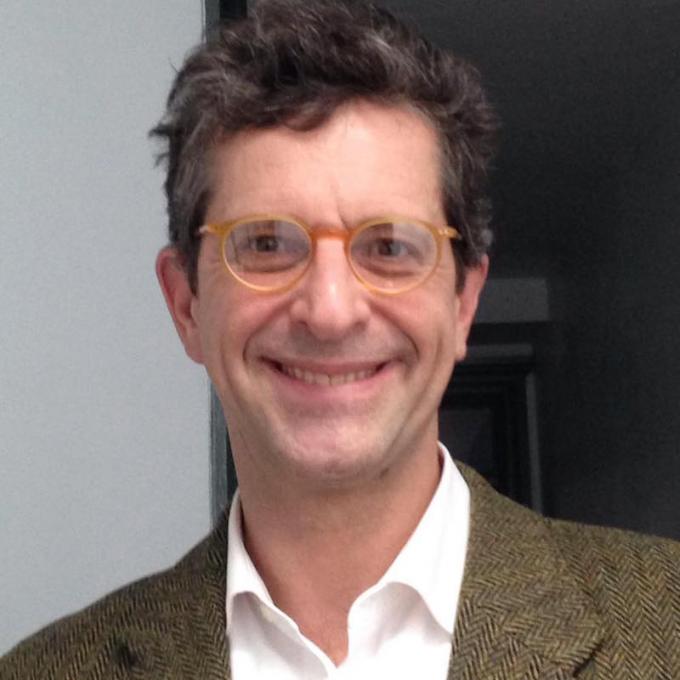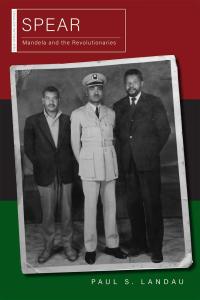Paul Landau

Professor, History
plandau@umd.edu
2132 Taliaferro Hall
Get Directions
I come to what I do by way of African Studies and History.
I teach classes about South Africa, African cities, where ethnic groups come from, Christianity, prophetic and political movements in Africa and the Atlantic World, pictures, cinema, and colonialism, and mid-20th century revolutionary movements & the Cold War in Africa.
I am a fellow at the History Centre at the University of Johannesburg.
At present, I'm researching the world anti-apartheid movement.
BOOKS:
Spear: Mandela and the Revolutionaries (Ohio University Press, 2022). Winner, American Historical Association, Martin Klein Prize for Best English Language Work in African History, 2023.
Popular Politics in the History of South Africa, ca. 1400 to 1948 (New York: Cambridge Univ. Press, 2010). Finalist, African Studies Association best book (Herskovits) Prize.
The Realm of the Word: Language, Gender and Christianity in a Southern African Kingdom (Portsmouth, NH: Heinemann, 1995). Finalist, African Studies Association Best Book (Herskovits) Prize
Selected ARTICLES AND CHAPTERS
“Transformations in Consciousness,” ch. 8, Cambridge History of South Africa, Vol. 1 : From Early Times to 1885. Eds. Carolyn Hamilton, Bernard K. Mbenga, Robert Ross, eds. (Cambridge: Cambridge University Press, 2010).
“Language,” for the Companion series to the Oxford History of the British Empire, Missions and Empire. Ed. Norman Etherington (Oxford: OUP, 2005).
“The Image of Christ in the Kalahari Desert,” Representations 45 (1994): 26-40.
“Explaining Surgical Evangelism in Colonial Southern Africa: Teeth, Pain and Faith,” Journal of African History 37. 2 (1996): 261-81.
“Hegemony and History in Jean and John L. Comaroff's "Of Revelation and Revolution,” Africa: Journal of the International African Institute 70.3 (2000): 501-19.
Co-edited book (with Deborah Kaspin): Images and Empires: Visuality in Colonial and Postcolonial Africa (Berkeley: Univ. of Cal., 2002).
"The ANC, MK, and 'the Turn to Violence,'" 2012, in The South African Historical Journal. https://muse.jhu.edu/article/482075/pdf
In 2020 and 2021, I spent a semester in two visits in the University of Leipzig multi-year project as a senior fellow, the “Multiple Secularities, Multiple Modernities” KFG program. My next project flows from that work on the international anti-apartheid movement. http://www.tandfonline.com/doi/full/10.1080/02582473.2012.660785
Awards & Grants
Paul Landau Wins the Martin A. Klein Prize in African History
Distinguished Work of Scholarship on African History
Author/Lead: Paul LandauAward Organization:
Martin A. Klein Prize | American Historical Association

Paul Landau has been awarded the Martin A. Klein Prize from the American Historical Association for his book Spear: Mandela and the Revolutionaries (Ohio University Press, 2022).
The Martin A. Klein Prize in African History recognizes the most distinguished work of scholarship on African history published in English during the previous calendar year. The prize is named for Martin A. Klein, who is currently professor emeritus of history at the University of Toronto.
Publications
Paul Landau Wins the Martin A. Klein Prize in African History
Distinguished Work of Scholarship on African History
Author/Lead: Paul LandauAward Organization:
Martin A. Klein Prize | American Historical Association

Paul Landau has been awarded the Martin A. Klein Prize from the American Historical Association for his book Spear: Mandela and the Revolutionaries (Ohio University Press, 2022).
The Martin A. Klein Prize in African History recognizes the most distinguished work of scholarship on African history published in English during the previous calendar year. The prize is named for Martin A. Klein, who is currently professor emeritus of history at the University of Toronto.
Paul S. Landau | Spear: Mandela and the Revolutionaries
Paul S. Landau's new book, Spear: Mandela and the Revolutionaries has been published in the US by Ohio University Press.
Author/Lead: Paul Landau
Paul S. Landau's new book, Spear: Mandela and the Revolutionaries has been published in the US by Ohio University Press. Reviewers have hailed the book as a "tour de force" which sheds much new light on the relationship between South African rebels against apartheid and violence. One reviewer wrote on the publisher's website: "Spear: Mandela and the Revolutionaries is one of the most important books on South Africa to appear in more than a generation. A masterpiece of analysis and careful historical reconstruction, Landau revisits a crucial moment in the country’s modern history, when a group of activists turned revolutionaries led by Nelson Mandela pursued the overthrow of the racist apartheid state."
See the publisher's website here.

Paul S. Landau is interviewed about his new book, Spear: Mandela and the Revolutionaries (Ohio University Press, 2022) on H-Nets New Books Network. The moderator Rabrecus Toles says of the book: "Landau complicates the whitewashed “grandpa” figure so many of us have come to know Mandela to be. He gives us a detailed glimpse into the mind of the revolutionary and oftentimes violent Nelson Mandela that we so anxiously want to know." The book has been praised in many quarters as presenting a vital new view of Mandela's role in the end of apartheid.
Hear the full interview HERE.

